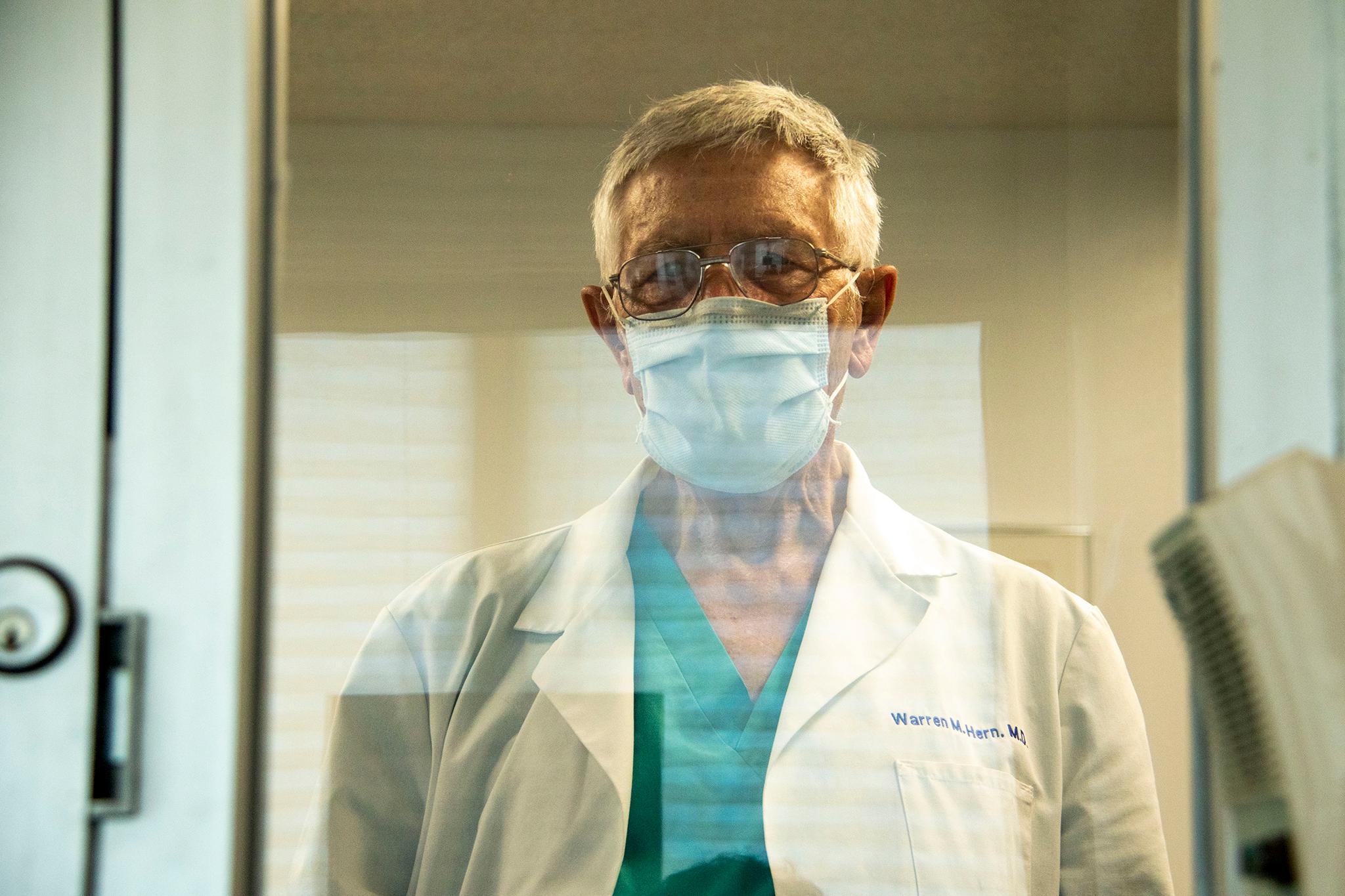
The entryway to Dr. Warren Hern’s abortion clinic in Boulder is different from most doctor’s offices.
Outside, the front doors are locked. To get in, you have to show your driver’s license. Inside, the reception desk is protected behind a thick layer of glass.
“All of this is bulletproof,” Hern said, standing in the empty lobby on a recent afternoon.
The precautions are for good reason. One morning, in 1988, a man carrying a high-powered rifle fired five rounds into the office’s front window. Hern had just walked into work, and one of the bullets nearly hit a front desk clerk.
“Whoever fired the rifle was trying to kill somebody,” he said.
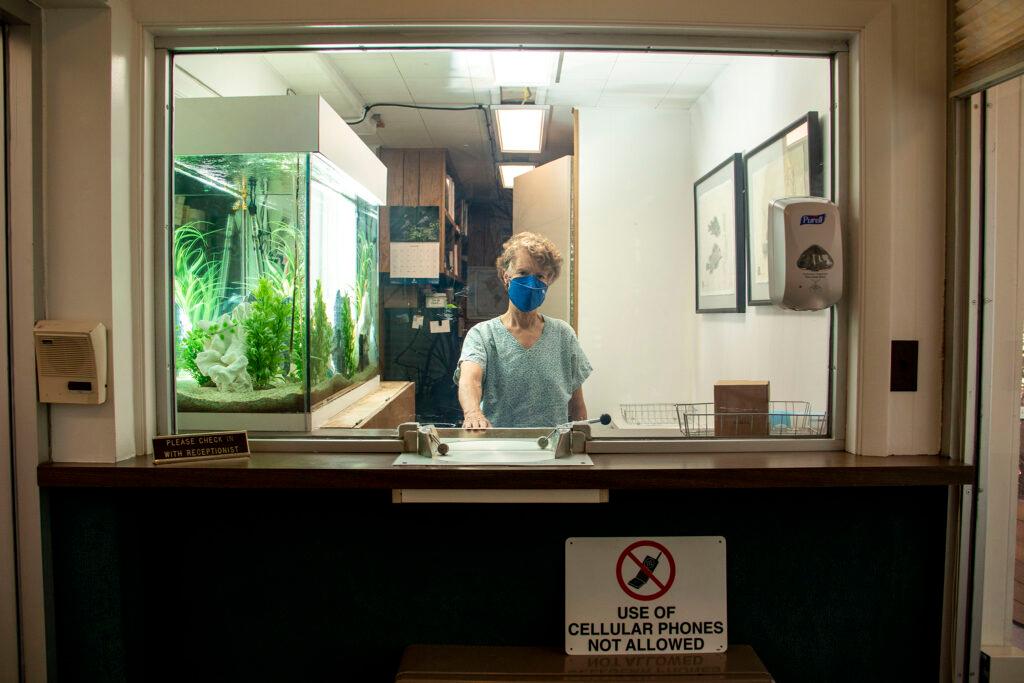
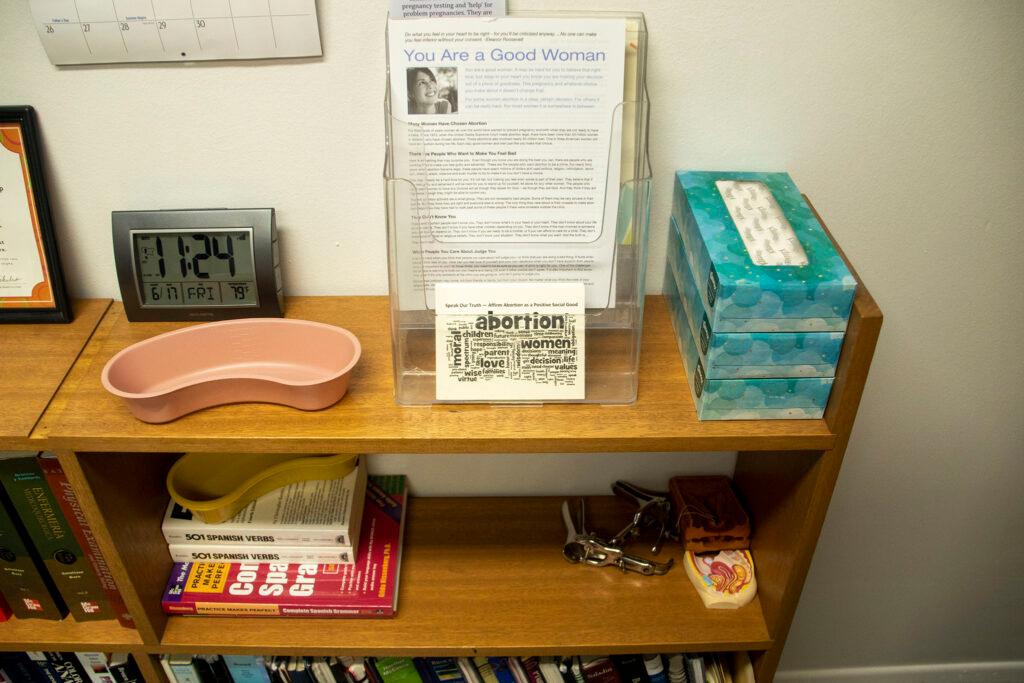
In the decades since, Hern’s updated his clinic’s security on a regular basis, adding new camera systems and increasing patient background checks.
There haven’t been any close calls recently, he said. But a steady stream of threats has poured into the office’s email and phone systems since a draft of the Supreme Court’s opinion in Dobbs v. Jackson Women's Health Organization leaked this spring, and Hern worries it'll get worse as protections roll back in neighboring states.
“You can’t do anything beyond what we’ve already done except read the situation minute-by-minute,” Hern said. “I think that the threat to our lives is permanent. It's not gonna go away.”
Hern is one of many doctors across the state re-evaluating security protocols as the country’s abortion landscape transforms, and long-simmering tensions flare between both sides of the debate. Colorado is one of the few states where abortion access is protected by state law, but it’s surrounded by states like Texas, Utah and Wyoming, which have all restricted or plan to restrict the procedure.
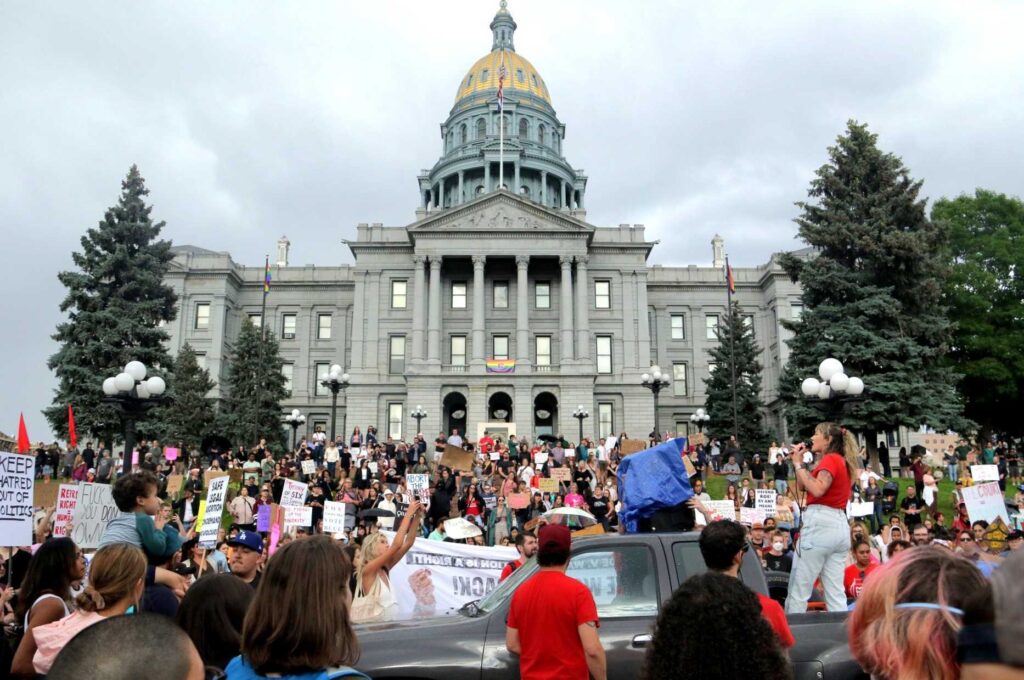
Abortion access advocates worry that clinics in places like Colorado will be the target of increased harassment and protest activity in the months ahead as patients flow in from out of state and opponents focus their attacks.
Recent data suggest incidents of blockades, assaults and break-ins at clinics are all on the rise. Reports of stalking involving clinic staff increased 600 percent from 2018 to 2021, according to a recent survey from the National Abortion Federation, the country’s largest association of abortion providers.
“There has been more public demonization of providers since 2015, 2016,” said Melissa Fowler, NAF’s chief program officer. “You've seen more politicians really being bold and out talking about abortion providers, demonizing providers, and that’s had an impact.”
The organization has already tracked a number of attacks this year, including an arson at a clinic in Casper, Wyoming in May. Police there have not identified a suspect or made any arrests in the case.
“In some cases it seems to be more acceptable for people to be out about their extremist behavior that perhaps they did secretly before,” Fowler said.
Colorado’s last major attack on an abortion clinic took place in 2015, when a man entered a Planned Parenthood in Colorado Springs and shot a dozen people. A police officer and two civilians died in the mass shooting.
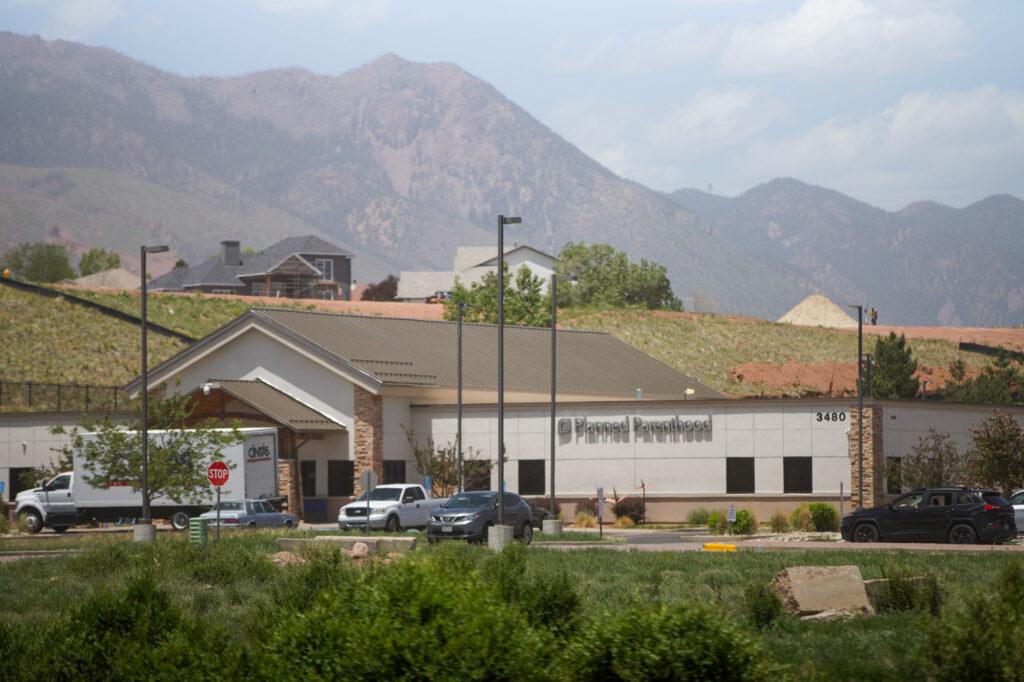
A judge deemed the main suspect incompetent to stand trial after he pled guilty to the shooting and openly described himself as “a warrior for the babies” during a 2015 courtroom hearing. The attack fueled calls for stricter gun control from Democratic lawmakers, and local police increased presence at clinics for several months after.
Planned Parenthood of the Rockies, in a statement, declined to talk about security improvements it made after the shooting. The organization is “constantly evaluating our security needs and making adjustments accordingly,” a spokeswoman wrote in an email.
The shooting — and most recent SCOTUS ruling — have reminded providers to stay on guard, said Dr. Rebecca Cohen, medical director of the Comprehensive Women’s Health Center in Denver.
“We recognize that the threat is heightened right now,” Cohen said. “And we’ve been taking high-level security measures for many, many years.”
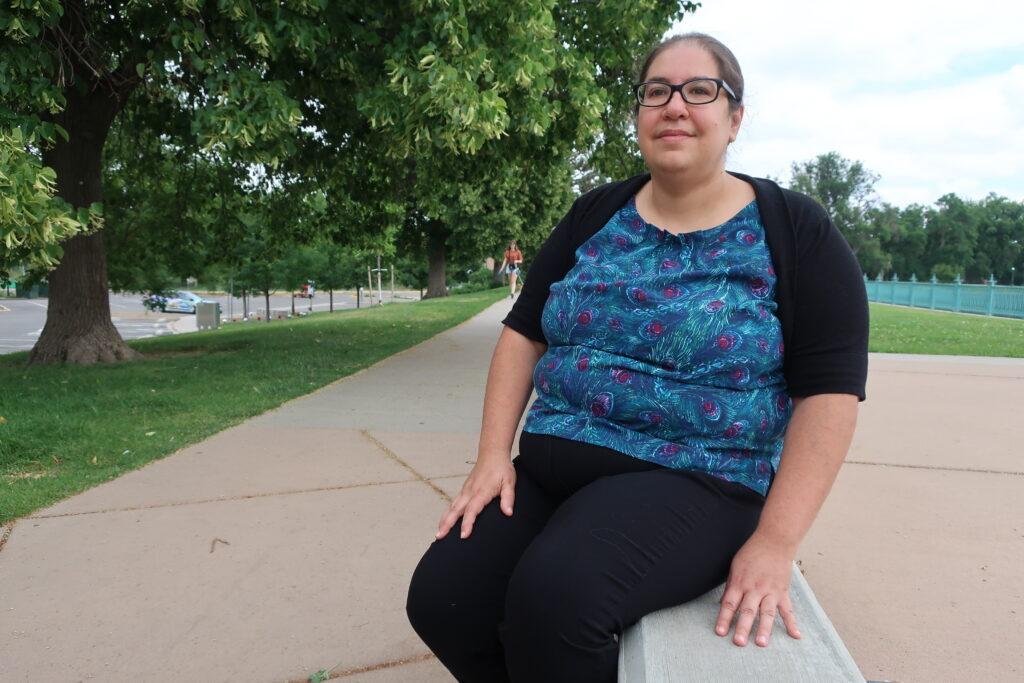
Changes include withholding the address of their clinic from their website, and only giving it to people that have an appointment. All patients, employees and volunteers are screened and background checked.
The number of people patients can bring to appointments for support is also limited, Cohen said. She declined to discuss any specific threats for safety reasons.
All the precautions have taken a toll on staff, she said.
“It’s hard for us as healthcare providers and for the patients,” she said. “We came into this to take care of people and just what it means to take care of someone has gotten so much broader and so much more difficult.”
Legal safety is also a growing concern.
Last week, Gov. Jared Polis issued an executive order aimed at protectingpeople who come to Colorado for abortions, or to anyone who helps another person cross state lines for the procedure. The executive order says Colorado will not participate in any out-of-state investigations involving abortion providers or recipients, as long as the parties have followed state law.
The move was a relief for doctors who worry that some states may try to prosecute people who help their residents get abortions in legal areas.
“That’s a win for us,” Cohen said.
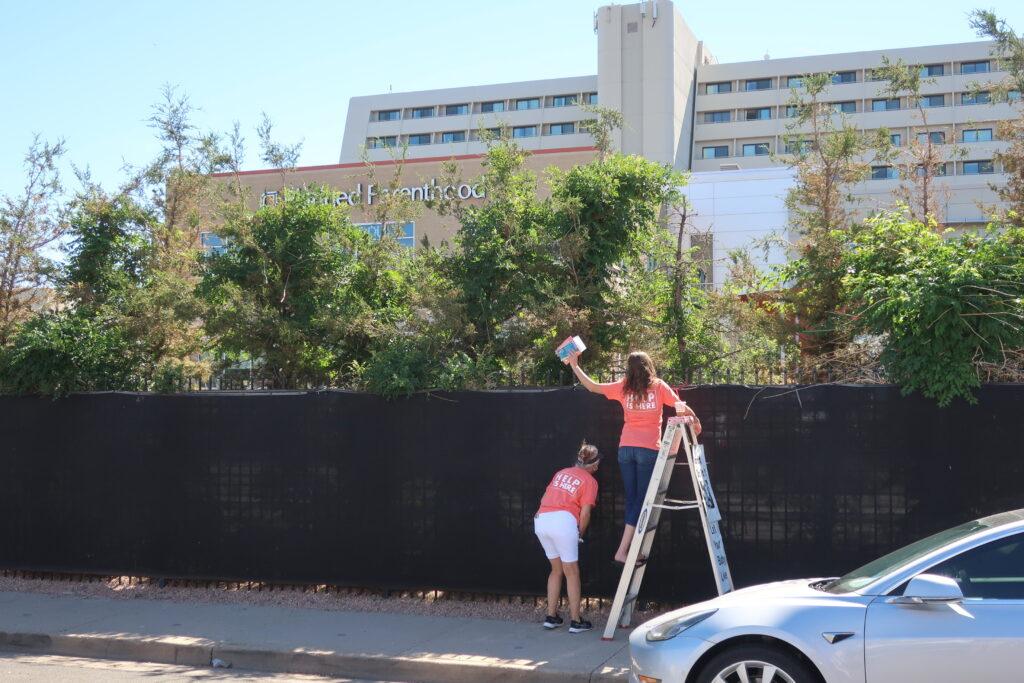
On one afternoon in early July, Michelle Thorsen climbed to the top of a ladder outside Planned Parenthood’s Park Hill Health Center in Denver.
She poked her head over the top of the clinic’s 10-foot-tall fence to talk to a woman as she walked up to the clinic’s front door.
“You can leave any time,” Thorsen said to the woman, who walked toward the front door without acknowledging her. “Don’t feel like you have to stay if you’re not willing to go through with it.”
The clinic is a guarded fortress, with black netting blocking the view from outside. Signs warn bystanders that they are being audio and video recorded.
Thorsen is part of Love Life, a Christian anti-abortion ministry group. Their work involves counseling and providing adoption services to women who choose not to go through with abortion. Thorsen says she doesn’t view her work as violent or threatening, but she understands doctors’ concerns.
“Maybe there have been some groups and individuals in the past that have given us a bad rap because of their delivery or technique,” Thorsen said “But that’s not our goal at all.”
Other large anti-abortion rights groups in the state, including Focus on the Family, have also denounced the rise in violent protest tactics. They point to attacks at Christian pregnancy support clinics, including one in Longmont, as another symptom of the charged political environment.
Some groups plan to increase peaceful protest activity in the state, said Will Duffy, president of Colorado Right to Life. His group’s focus is moving beyond just clinics, he added.
“We’re going to be going to the homes of abortion providers and demonstrating,” Duffy said. “We want their neighbors to know what they’re doing for a living and hopefully get them to reconsider what they do.”
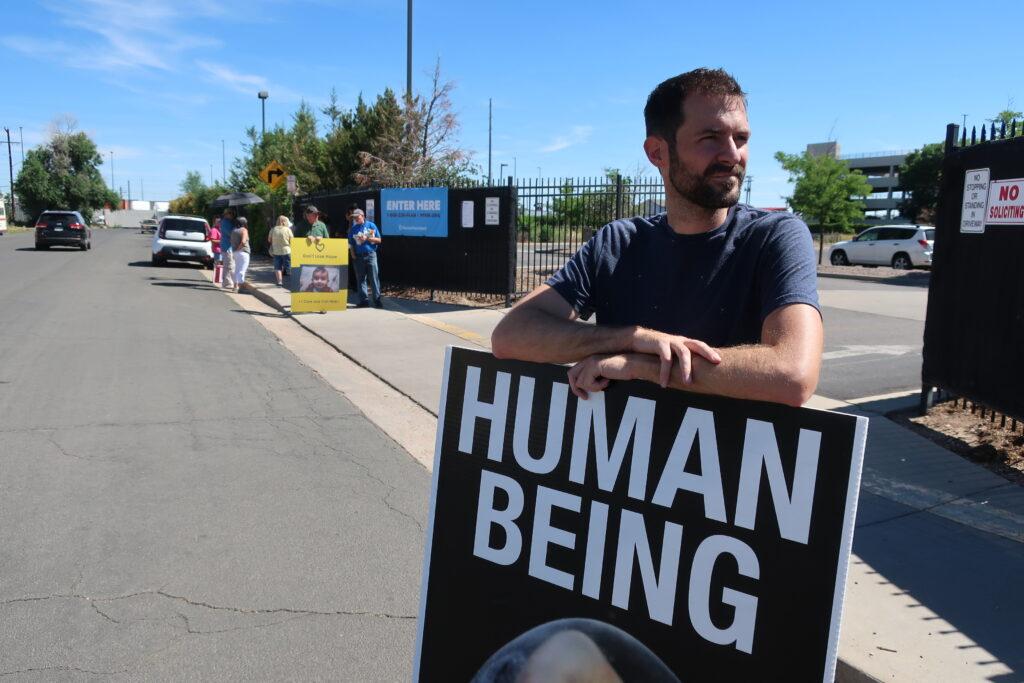
Duffy says they plan to follow all of Colorado’s laws around protesting at clinics, including a buffer zone rule that’s been on the books since 1993. That put a 8-foot bubble around patients as they enter healthcare facilities.
But Hern, the Boulder abortion doctor, says it isn’t enough to protect people already in a vulnerable place.
“I think that it's stressful for the patients if they encounter the demonstrators,” Hern said. “We give the patients a ride in our van between here and the hotel. So they don't have to face that every day after they get through, then we take care of them.”
That remains his main focus, he said, even with threats on the rise.
“I think that this is a critical, essential component of women's healthcare for women in the 21st century,” Hern said. “And we're gonna keep doing it.”
But it comes at a personal cost. A few years ago, he started sleeping with a rifle by his bed. And he doesn’t plan on changing that any time soon.
Editor's note: Several photo captions in this story have been updated to correct Dr. Hern's first name.









